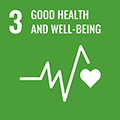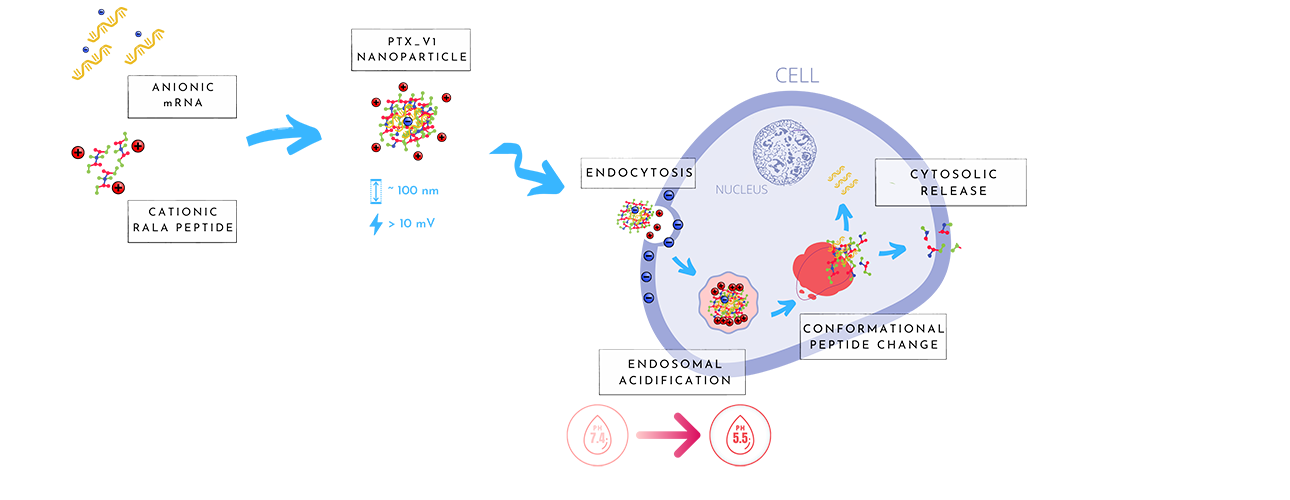Researchers in the School of Pharmacy at Queen’s are developing the next generation of drug and vaccine delivery technologies.
Research Challenge
Advances in biotechnology have allowed economical large-scale production of therapeutically-important biological drugs. Thus, therapeutic antibodies, peptides proteins and nucleic acids are increasingly employed as vaccines, anticancer agents, immunomodulators and hormones, as well as for many other indications. However, their high molecular weight and instability require administration by injection.
The COVID-19 pandemic has greatly enhanced the need for self-administration of injectables at home, away from healthcare settings, where transmission could have dire consequences. Complexities of cold-chain storage, distribution and administration, needle phobia and difficulty of domestic disposal of potentially-contaminated sharps all contribute to an urgent need for alternative delivery modes for injectable drugs/vaccines.
Our Approach
Microneedle arrays (MN) are minimally-invasive devices that, upon insertion, painlessly and without drawing blood, bypass the skin’s stratum corneum barrier, creating microscopic holes through which drugs diffuse to the dermal microcirculation. Professor Ryan Donnelly has developed unique MN for transdermal delivery of biomolecules, as well as conventional drugs. The novelty of this concept lies in the fact that such drugs can either diffuse through holes created by rapidly-dissolving MN for immediate delivery, or diffuse in a controllable fashion from an attached patch-type drug reservoir through MN swollen by moisture from the viable skin.
The MN systems overcome problems associated with conventional silicon and metal MN and have the potential to vastly increase the range of drugs deliverable transdermally. Delivery of vaccines without risk of cross-infection is another application of particular value. Self-disabling MN will be of tremendous value in the developing world, where at least 50% of the 1 billion childhood vaccines given annually are unsafe and around 3 million healthcare workers are injured annually with contaminated needles.
Professor Helen McCarthy’s research focuses on using a peptide termed RALA to stabilise and deliver mRNA vaccines. Prof. McCarthy was invited to become a member of the UK intracellular delivery (ICD) taskforce during COVID in recognition of how important mRNA therapeutics are for the future. The use of RALA has huge implications for wide-spread distribution, an issue that has required urgent responses in the recent context of accessibility of COVID vaccines. Additionally, because the RALA peptide is not recognised as foreign, our RALA/mRNA vaccines are not cleared by the innate immune response. This means that the nanoparticles enter a high number of CD11c+ antigen presenting cells which evokes a strong therapeutic and prophylactic response. Finally, there are manufacturing and scalability advantages of RALA/mRNA vaccines which include a fully automated cost-effective process. The technology is synonymous with innovation, including the design of the RALA peptide, the first of its kind prophylactic and therapeutic vaccine and the potential application of this technology to clear other as yet unknown viral infections of the future.
There’s no point creating a transformative drug, if it cannot be delivered to the site of action.
What impact did it make?
Professor Donnelly's work has led to the development of scalable methods of microneedle manufacture at the world’s largest transdermal patch manufacturer, who have now been granted authorisation for Europe's first GMP Manufacturing Licence for microneedles. He also developed laser engineering as a process for manufacture of microneedle moulds, with an Irish company now selling these moulds globally. He has pioneered quality control tests for microneedles, using artificial substrates for penetration testing and optical coherence tomography for study of microneedle swelling/dissolution in skin, with both techniques now widely used in both industry and academia across the world. His research has led to a change in mindset in a field previously focussed almost exclusively on vaccine delivery. Now an increasing number of leading companies are engaging with his Group to study delivery of high-dose drugs, particularly for long-acting treatment of HIV and other chronic conditions, such as Parkinson’s disease and schizophrenia.
Professor McCarthy spun this technology into pHion therapeutics in order to realise its potential, winning INVENT NI and the All Ireland Seedcorn awards for the most investable start-up in 2017. Since then pHion are developing a pipeline of mRNA vaccines with the support of Invest NI and Innovate UK which includes a therapeutic mRNA vaccine for HPV and a triple mRNA vaccine for COVID-19 and more recently a mRNA vaccine for high grade serious ovarian cancer. pHion has recently secured significant investment to take its first therapeutic HPV vaccine into clinical trials using an innovative modular approach. pHion has also secured new premises in Titanic Quarter in Belfast and aims to be the first mRNA vaccine company in Northern Ireland. As CEO of pHion, Professor McCarthy works with key UK stakeholders including Cell and Gene Therapy Catapult, Medicine Discovery Catapult, The Centre for Process Innovation, Alderley Park, Aptus Clinical and Alembia IP, to help produce vaccine products.
Our impact
Impact related to the UN Sustainable Development Goals
Learn more about Queen’s University’s commitment to nurturing a culture of sustainability and achieving the Sustainable Development Goals (SDGs) through research and education.









